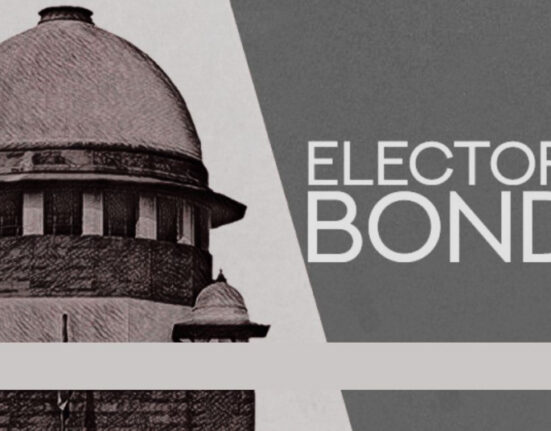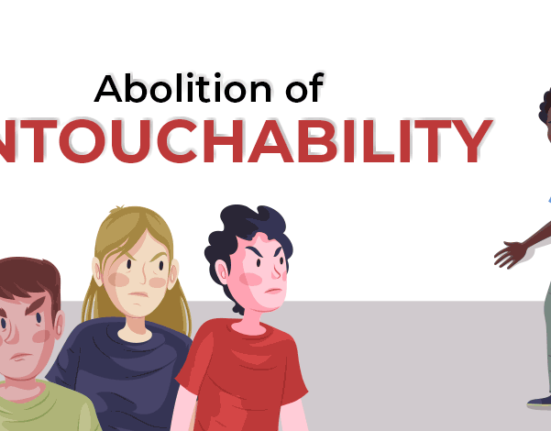This article, “Limits of Judicial Immunity: When Judges Can Be Sued” is written by Urvashi Lanjhewar a 5th year Law student at Sage University, Indore.
Introduction
In most legal systems, judges have judicial immunity, which means they generally cannot be sued for actions taken in their judicial capacity. This immunity is designed to protect judges from the fear of personal liability for their decisions, thus ensuring their independence and allowing them to make decisions based solely on the law and facts of the case, without external pressures. Judicial immunity protects judges from being sued for their judicial actions, even if a party believes the judge made a wrong decision or misapplied the law. This immunity applies to actions taken within the scope of the judge’s judicial capacity, including dismissing applications and interpreting case law. However, there are some specific and limited circumstances where a judge might be sued for actions taken in their official capacity. Prashant Bhushan v. Union of India (2020) 11 SCC 215, this case involved contempt proceedings against a lawyer who made allegations against the judiciary. The Supreme Court discussed the balance between judicial immunity and the right to criticize the judiciary and also highlighted the limits of immunity.
Legal Basis for Judicial Immunity
- Constitutional Provisions: Article 137 of the Indian Constitution provides that the Supreme Court has the power to review its judgments or orders. However, this does not extend to suits against judges personally for their judicial acts.
- Judges (Protection) Act, 1985: This Act provides protection judges from being sued for acts done or words spoken while discharging their judicial functions. Section 3 of the Act explicitly states that no court shall entertain any suit or other legal proceeding against a judge for any act done or ordered to be done by them in the discharge of their official duties.
- Judicial Immunity: Section 77 of the Indian Penal Code (IPC) states that judges are exempt from criminal liability for acts done or ordered to be done in their judicial capacity. A judge cannot be sued for decisions or actions while performing their official duties. Anowar Hussain v. Ajoy Kumar Mukherjee (1965) This landmark case affirmed the principle of judicial immunity. The Supreme Court held that judges are immune from suits for damages for acts done in their judicial capacity, even if they act maliciously or corruptly. In case M. Karunanidhi v. Union of India (1979) 3 SCC 431 This case discussed the immunity of public officials, including judges, and the need for safeguards against frivolous litigation. The Supreme Court held that actions done in an official capacity are generally protected unless done with malafide intent.
- Judicial Immunity and Civil Liability: The Judicial Officers Protection Act of 1850 provides that no judge, magistrate, or person acting judicially shall be liable to be sued in any civil court for any act done or ordered to be done by them in the discharge of their judicial functions, whether or not within the limits of their jurisdiction, provided they acted in good faith. Delhi Judicial Service Association v. State of Gujarat (1991) 4 SCC 406 This case involved the arrest of a judge, which led to a significant judgment on the independence of the judiciary and the need for protection against arbitrary actions. The Supreme Court held that judges should not be subjected to criminal proceedings without prior sanction.
scenarios in which a judge might be sued:
- Actions Outside Judicial Capacity: If a judge takes actions that are administrative or otherwise outside their judicial role, they might not be protected by judicial immunity. For example, if a judge engages in hiring or firing staff in a discriminatory manner, they could potentially face a lawsuit for those actions. Shiv Shankar Singh v. State of Bihar (2012) 1 SCC 130 The Supreme Court discussed the limits of judicial immunity in the context of a judge acting outside their judicial capacity. The case emphasized that immunity is not absolute and does not cover acts done in a personal capacity.
- Acting Without Jurisdiction: If a judge makes a ruling or takes an action in a case over which they have no legal authority, they may be sued. For example, if a judge hears a case that is explicitly outside their jurisdiction (such as a state court judge ruling on a federal matter without any basis), they could potentially face legal consequences.
- Constitutional Violations: If a judge violates a person’s constitutional rights, they might be subject to a lawsuit. For example, if a judge knowingly violates a person’s right to due process, that person might be able to sue the judge. However, proving such a violation is extremely challenging, and the judge’s actions must be clearly outside the bounds of legitimate judicial activity.
- contempt of Court: If a judge’s actions amount to contempt of court, they can be proceeded against under the Contempt of Courts Act, 1971. Justice Soumitra Sen Impeachment (2011): Justice Soumitra Sen of the Calcutta High Court was found guilty of misappropriating funds before his elevation to the bench. The Rajya Sabha passed an impeachment motion against him, but he resigned before the Lok Sabha could take action. This case is an example of the mechanism available to hold judges accountable through parliamentary procedures rather than direct lawsuits
- criminal act: if a judge is involved in any kind of criminal misconduct in their official capacity, then also they may be sued.
- Malicious or Corrupt Acts: In some jurisdictions, if a judge’s actions are proven to be malicious or corrupt, they might not be immune from lawsuits. This is rare and difficult to prove, as it requires clear evidence of intentional wrongdoing.
Legal Recourse for Parties
If you believe a judge has acted improperly or violated your rights in K. Ashok Reddy v. Government of India (1994) 2 SCC 374: This case involved a judge who was accused of misconduct. The Supreme Court emphasized the need for maintaining judicial integrity and provided guidelines on how complaints against judges should be handled.
- Appeal the Decision: The primary legal recourse is to appeal the judge’s decision to a higher court. Appellate courts review lower court decisions for errors of law and procedure.
- File a Complaint: In many jurisdictions, there are judicial conduct boards or commissions that oversee judicial behaviour. You can file a complaint if you believe a judge has acted unethically or outside their judicial capacity. Sub-Committee on Judicial Accountability v. Union of India (1991) 4 SCC 699 The case dealt with the procedures for investigating allegations of corruption against judges. The Supreme Court reiterated that while judges enjoy immunity, they are not above the law.
- Seek Legal Advice: Consulting with an attorney who specializes in judicial misconduct or constitutional law can provide specific guidance based on the facts of your case and the applicable jurisdiction.
Cases
- R. Rathinam v. State of Tamil Nadu & Anr., (2001) 2 SCC 173. In this case, the Supreme Court of India reiterated the principle that judges are immune from civil suits for actions taken in their judicial capacity. The Court emphasized that this immunity is essential to ensure judicial independence and to prevent frivolous litigation against judges, which could hamper the administration of justice
- K Veeraswami v. Union of India (1991): In this landmark judgment, the Supreme Court held that judges of the higher judiciary (Supreme Court and High Courts) can be investigated for criminal misconduct with the prior sanction of the Chief Justice of India. This case set a precedent that judges are not above the law and can be held accountable for criminal acts.
- A.M. Bhattacharjee Case: Justice A.M. Bhattacharjee of the Bombay High Court resigned after allegations of financial irregularities and misconduct. Though he was not sued, the case highlighted that judges could face consequences for actions deemed inappropriate or illegal.
- Justice Soumitra Sen Impeachment (2011): Justice Soumitra Sen of the Calcutta High Court was found guilty of misappropriating funds before his elevation to the bench. The Rajya Sabha passed an impeachment motion against him, but he resigned before the Lok Sabha could take action. This case is an example of the mechanism available to hold judges accountable through parliamentary procedures rather than direct lawsuits.
- Anowar Hussain v. Ajoy Kumar Mukherjee (1965): This landmark case affirmed the principle of judicial immunity. The Supreme Court held that judges are immune from suits for damages for acts done in their judicial capacity, even if they act maliciously or corruptly.
Conclusion
Judges in India cannot be sued for actions taken in their judicial capacity due to the protections offered by the Indian Penal Code and the Judicial Officers Protection Act. These protections ensure judicial independence and allow judges to make decisions without fear of personal legal repercussions. However, this immunity is not absolute, and judges can face legal consequences for actions outside their judicial capacity, particularly in cases of proven misconduct or corruption.
Reference
https://indiankanoon.org/doc/1229451
https://www.lc2.du.ac.in/DATA/C.%20Ravichnadran%20Iyer%20v.%20Justice%20A.M%20Bhattacharjee.pdf
https://indiankanoon.org/doc/1269046
https://www.legalserviceindia.com/legal/article-13841-anowar-hussain-v-s-ajoy-kumar-mukherjee.html
https://indiankanoon.org/doc/1716282
https://indiankanoon.org/doc/18814







Leave feedback about this